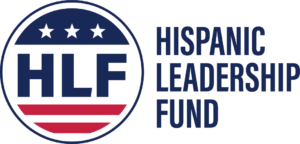With advancements in technology and the growing demand for modern skills—in Artificial Intelligence, for example—universities are continuing to recognize the advantages of online learning for non-traditional students and the next generation of the workforce.
Students no longer must relocate or travel long distances for the right programs and degrees. Online programs also make it possible for students who had put their education on hold to return and get their degrees later.
The web-based platforms are developed and maintained by Online Program Managers (OPMs) and other third-party service providers. They develop online programs, including course design, marketing, recruitment, and student support services for colleges and universities.
The nature of these partnerships means that institutions are then able to expand their reach without bearing the full brunt of all the upfront costs needed to establish the extensive infrastructure that is necessary for the platforms to function. For all but the largest universities, those costs are prohibitive.
That dynamic has facilitated the growth in online course offerings. Just recently the Massachusetts Institute of Technology (MIT)—which in 2021 was ranked by US News as the second-best school in the world—launched a platform to provide online courses for free. MIT offers access to over 2,000 free online courses through its Open Courseware.
The possibilities include workforce training within STEM related occupations to fill the gaps to high demand jobs in these areas. Science, technology, engineering and math (STEM) jobs are projected to grow 15% between 2021 and 2031.
Other institutions like the University of Texas, Austin, and Boston University currently offer online courses for master degrees in AI at lower and more affordable rates than other competitive universities. Additionally, BU’s AI4ALL is a program for high school students and meant to promote increased diversity in the field.
Online learning offers individuals the chance to learn at their own pace and from anywhere in the world. This accessibility is particularly valuable for non-traditional students, working professionals, and individuals with diverse backgrounds who may not have access to traditional educational opportunities.
OPMs and third-party servicers (TPS) are indispensable in this regard. They have contributed to rapid innovation and investment in online education.
But over the last few years, the Department of Education has shown that it is all too eager to enact onerous regulatory changes that will limit the freedom of universities to contract with companies that manage online learning programs.
Indeed, when DOE announced the changes last year, the Chronicle of Higher Education described it as “a stunning expansion of its interpretation of federal regulations.” The now updated guidance provided by the Department of Education (DOE) drastically expands the definition and requirements of TPS throughout higher education.
The effect will be to disrupt critical students’ services. These policy changes will negatively threaten the high-quality, on-line education provides to millions of people including many lower income students who otherwise wouldn’t be able to get their degree.
The damage will be to students in all fields, but DOE’s restrictions will be felt in fast moving fields like AI that are growing in importance to the economic prospects for the country at large.
According to a report by the World Economic Forum, AI-related jobs are projected to see significant growth in the coming years, with roles such as data scientists, AI engineers, and machine learning specialists becoming increasingly critical.
Meeting these workforce demands requires a strategic approach to education and training. Traditional educational models often struggle to keep pace with the rapid advancements in AI, making online learning a vital component in building a skilled AI workforce. Online education also helps mitigate the disparity between the skills employers needs and the skills job seekers possess.
And although AI continues to generate headlines, the unnecessary push to limit the availability of the benefits from products that come from OPMs will apply to all fields. The Department of Education’s regulatory expansion is a poor policy choice that hurts students by stifling innovation, burdening them economically, and limiting their educational (and thus, economic) opportunities. When the future of our nation’s students is largely hindered, eventually the economic damage is felt by all.
Modern education policy should incentivize arrangements and technologies that make access to higher education more equitable and improve the lives of all American students. It should not place barriers that will hold them back.


No Comments